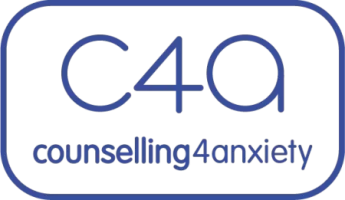I just wrote about the rise in anxiety felt post the pandemic and the kinds of search terms that are being used in counselling directories in the U.K. I also have written this piece in the Counselling Directory about how the way that anxiety is framed and talked about by front-line health professionals, needs to urgently change.
Framing anxiety as something that needs to be 'defeated' or 'overcome' may be easy to slip off the tongue, but the fact is that we can never truly get rid of the possibility of being anxious since it is hard wired into us. The way forward is to work with, accept and embrace what anxiety may do for us and to hold it, manage and calm it, when it is causing us problems in other parts of our lives; for example when we are safe but feeling nervous about some kind of impending doom.
The fact is that language is really important and framing issues such as anxiety that are seen as 'barriers to be overcome', give them an added impetus and energy that clients may pick up and build up in their minds. This is the last thing that they need and knowing that anxiety is not some all encompassing bear-hugging monster is key to the healing and development process. I cannot stress this enough.
The body is a complex and deeply connected system that seeks to defend and protect us from perceived or actual threats. It will do what it can and think what it can to ensure that we can get through mentally or physically testing or demanding situations. In doing so, its interpretations of situations and how we respond can become warped so that troubling feelings and thoughts are left behind as part of the coping mechanism. These are some of the lenses through which people with enduring anxiety and phobias see the world through. Uncoupling these thoughts and feelings means creating safe and workable situations in therapy where the client feels that they are not at risk and where they can explore alternatives to their anxious responses.

